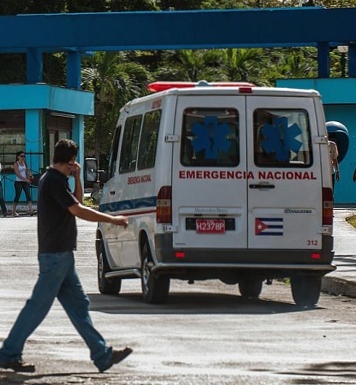Resurgence of cholera in Cuba causes concern
 (CNS): Public health officials are issuing warnings in Cayman regarding a resurgence of cholera on the neighbouring island of Cuba. Although the Public Health Department said that it is waiting for confirmation of the situation from the Pan American Health Organization (PAHO) reports suggested that there have been at least 51 new cases since the renewed outbreak began on 6 January. So far there have been no deaths as a result of the latest outbreak and there are no travel restrictions in place but Cayman's Public Health Director, Dr Kiran Kumar, said anyone who must go to Cuba needs to take vital precautions.
(CNS): Public health officials are issuing warnings in Cayman regarding a resurgence of cholera on the neighbouring island of Cuba. Although the Public Health Department said that it is waiting for confirmation of the situation from the Pan American Health Organization (PAHO) reports suggested that there have been at least 51 new cases since the renewed outbreak began on 6 January. So far there have been no deaths as a result of the latest outbreak and there are no travel restrictions in place but Cayman's Public Health Director, Dr Kiran Kumar, said anyone who must go to Cuba needs to take vital precautions.
“At this time, there are no travel restrictions. If you have to go, take vital precautions, such as: ensuring hygienic food preparation, boiling or purifying all water, and washing hands often with soap and clean water. Travellers should also carry an ample supply of oral rehydration salts,” he said. “Cholera is not present in the Cayman Islands and the chances of importation of cholera are limited. Even if it occurs, our excellent sanitation and safe water will prevent its spread. In addition, we have adequate facilities and drugs to manage any case should importation occur.”
Cholera is an acute intestinal infection caused by ingesting contaminated food or water with cholera bacterium. It can take anywhere from five hours to five days for symptoms to appear after infection, although symptoms usually occur within 24-48 hours. Cholera infection is often mild or without symptoms, but can sometimes be severe.
Travellers to Cuba are advised to contact their doctor immediately should they develop watery diarrhoea and vomiting within five days of leaving. It is also important to state their travel history to their doctor. This advisory is also applicable to travellers to Haiti and the Dominican Republic – the two other countries in the region affected by cholera.
Tips for Prevention
Travellers to Cuba or any endemic countries can greatly reduce the risk of contracting the disease by following these practices:
Drink only bottled, boiled or chemically-treated water and/or bottled or canned beverages;
Ensure that seals are unbroken when using bottled drinks;
Disinfect your own water – boil for one minute or filter the water and add two drops of household bleach or half an iodine tablet per litre of water;
Use bottled, boiled or chemically-treated water to wash dishes and brush teeth;
Use ice in your drink only if you know it was made from boiled or treated water;
Wash your hands often with soap and clean water;
Clean your hands before you eat or prepare foods, and after using the bathroom;
Eat foods that have been thoroughly cooked and are still hot, or fruit that you have peeled yourself;
Cook all vegetables. Do not eat salads or other raw vegetables;
Do not buy food or beverages from street vendors.
Category: Health


Note this article. Called the Dr. today and she stated there is no need for injections at this point. See suggested precautions.
No mention of cholera from the friendly ladies. Good to go.